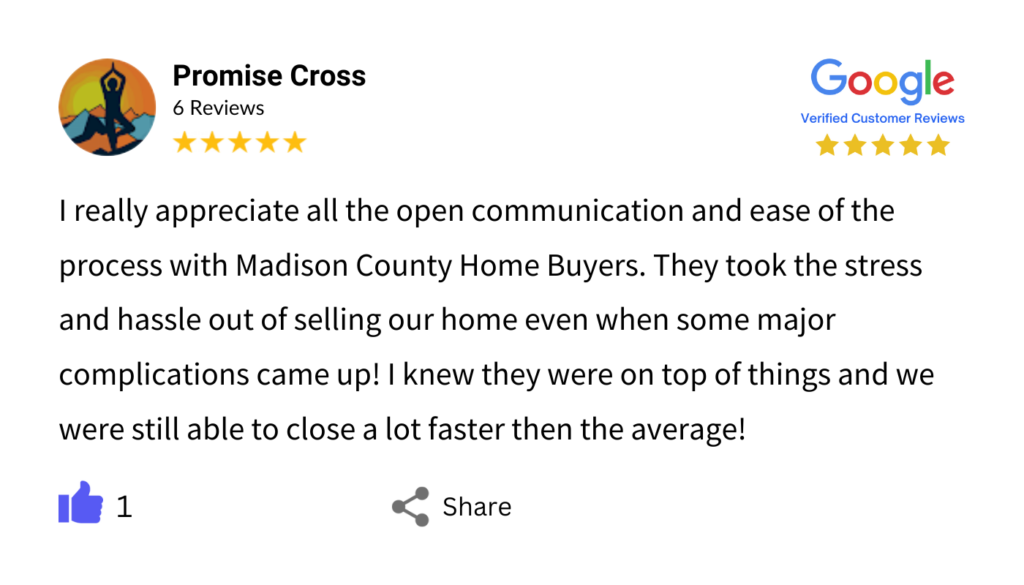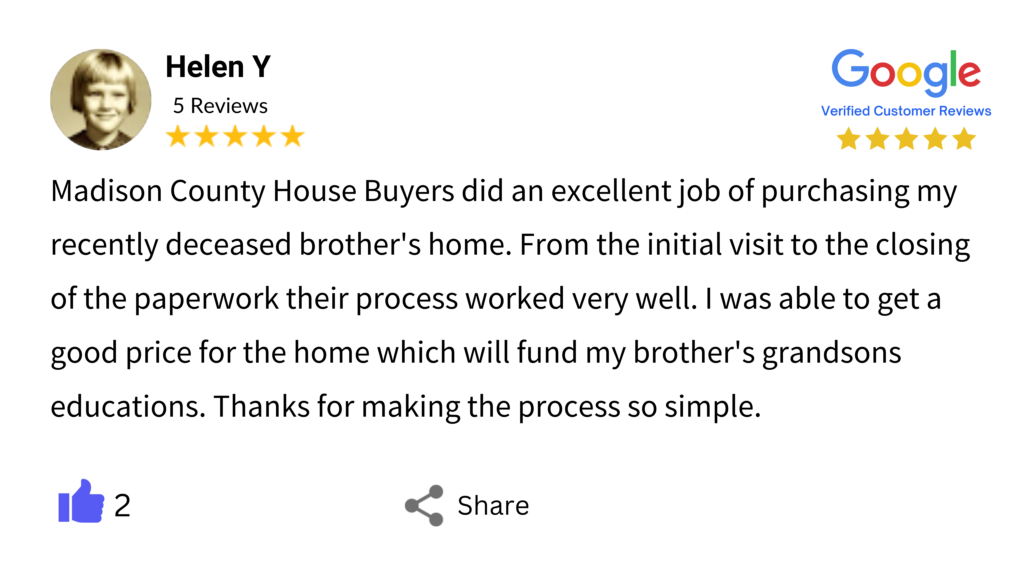Selling a house in probate in Alabama is a multi-step process that requires both understanding and patience. This journey involves legal paperwork, deadlines, and strict adherence to formalities that are essential for the rightful distribution of assets after the passing of an individual. While many might consider it daunting, being aware of your legal rights and obligations as the executor or personal representative of the estate can make the course far less intimidating.
In Alabama, probate real estate sales must follow the state’s probate code, which means you’ll need to obtain court approval before selling the property. This step ensures that the transaction is legally valid and that the interests of all beneficiaries and heirs are protected. If the deceased did not leave a will (intestate), the court will appoint an administrator to manage the estate, including any property sale.
Imagine moving forward with clarity and confidence, knowing you can legally initiate the home sale once you’ve secured the necessary authorization from the probate court. With proper guidance and preparation, you can navigate the probate process while still honoring your loved one’s legacy.
Whether the property is in disrepair, currently occupied, or ready for listing, understanding how to sell a house in probate in Alabama is key to ensuring a smooth and lawful transaction. In the next section, we’ll dive deeper into the Alabama probate timeline, required documentation, and your available options—whether selling to a private buyer, listing with a real estate agent, or choosing a fast cash home sale route.
Selling a house in probate in Alabama involves several legal steps, including appointing an executor or administrator, appraising the property, petitioning the court for sale approval, and more. You can work with probate real estate agents, real estate investors, or cash home buyers to facilitate the sale during this complex process. It’s essential to consult with legal and real estate professionals to navigate this process effectively.
Get An Offer Today, Sell In A Matter Of Days…

The Probate Process in Alabama
When an individual passes away, their assets, including their property or house, go through a legal process called probate. In Alabama, this involves specific legal steps and paperwork to distribute the assets. The objective is to ensure that the deceased person’s debts and taxes are paid and that the remaining property is transferred to the appropriate individuals.
The probate process in Alabama can be broadly categorized into two types: formal and informal.
The formal probate process entails more court oversight compared to the informal process. It’s typically utilized when there’s a disagreement about the will or if there’s ambiguity about distributing the assets. In contrast, the informal process is less intricate and faster due to minimal court involvement. Each process has its own timeline, procedures, and complexity that impact how a house in probate may be sold. Understanding these procedures and timelines when selling a house in probate in Alabama is vital for all parties involved.
Understanding these procedures and the timeline involved when selling a house in probate in Alabama is vital for all parties involved.
Furthermore, during the probate process, an executor or administrator is appointed by the court. This individual is responsible for managing the deceased person’s estate, including paying any debts owed by the estate and distributing assets according to the deceased person’s wishes as outlined in their will or by state law. It’s essential to note that any decision regarding selling a property during probate falls under the responsibilities of the executor or administrator. They hold significant authority over how and when a property can be sold and must adhere to Alabama laws and court procedures at all times.
If you’re dealing with a house in probate in Alabama, it’s advisable to work closely with an experienced real estate professional who understands the state-specific legal requirements and timelines associated with selling a house in probate.
Now that we have unraveled a bit about how the probate process works in Alabama, let’s transition to understanding how houses can be sold during this complex legal procedure.
Our Customers Love Us & So Will You!
We care deeply about the satisfaction of the homeowners with whom we work. We are always striving for excellence in everything we do.
See more of our reviews






Your Authority to Sell the Probate House
As the executor or administrator, you carry a substantial responsibility in ensuring that the probate process runs smoothly, especially when it comes to selling the probate house. Your authority is pivotal, but just like every step in the probate process, there are legal requirements you’ll need to meet. Understanding your legal rights and responsibilities is crucial for successfully navigating through this phase.
Your role isn’t just about holding keys but carrying out duties in accordance with state laws and court guidelines. The moment the court appoints you as the executor or administrator, your authority extends to overseeing the deceased’s estate. This includes managing and distributing assets, which may involve selling the probate house.
Given this power, it’s essential to be well-informed about local laws and regulations regarding property sales during probate. In Alabama, as an executor or administrator, you hold the authority to sell real estate properties belonging to the deceased person’s estate. You must obtain formal court approval before initiating the sale.
This court approval involves following specific steps, such as filing a petition with the probate court to seek permission for the property sale. It’s important to adhere closely to these legal processes to avoid potential complications later on.
To ensure a smooth house sale in probate, consider consulting with legal professionals who specialize in probate real estate transactions. They can guide you through the entire process and help ensure that all legal requirements are met.
Understanding your legal position as an executor or administrator is vital for successfully selling a house in probate. With proper knowledge and legal support, you can confidently and efficiently navigate through this process.
As you step forward as the guardian of the property, essential measures are necessary when preparing for the sale of a home entangled in probate intricacies.
Preparing for Sale: Essential Steps

Selling a house in probate can be intricate and time-consuming, but understanding and executing the necessary steps will guarantee a smooth and legally compliant sale. The process involves several crucial steps, each with its own set of requirements. Let’s dissect them one by one, starting with the property appraisal.
Property Appraisal
Before proceeding with the sale, it’s imperative to have the probate house appraised to determine its fair market value. This valuation plays a pivotal role in setting the right selling price and helps in establishing a realistic expectation of what the property is worth, enabling confident and fair negotiations.
Additionally, a formal appraisal provides potential buyers with transparency and reassurance about the property’s value, potentially attracting more serious offers. It’s important to engage a qualified appraiser experienced in evaluating probate properties to ensure an unbiased and accurate assessment. The appraisal report aids in determining the listing price and serves as a supporting document validating the property’s value during negotiations or legal proceedings.
Get An Offer Today, Sell In A Matter Of Days…
Required Paperwork
Gathering all necessary documentation is instrumental in facilitating a legally compliant and efficient sale of a probate property. You will need to collect vital documents, including the death certificate, will, and relevant court orders to initiate the sale legally. These documents verify your authority as an executor or administrator of the estate and provide transparency throughout the sales process.
Furthermore, having all required paperwork accessible can expedite the sales process and demonstrate your commitment to engaging in an open and honest transaction. In addition to these essential documents, there may be additional paperwork necessary depending on the specific circumstances of the estate and local legal requirements. It’s advisable to consult with legal professionals to ensure compliance with all legal obligations and requirements related to selling a house in probate.
By following these comprehensive instructions diligently, you will set yourself up for success as you navigate through the intricate process of preparing a probate house for sale.
Understanding the meticulous preparations involved in selling a house in probate sets the stage for implementing strategies to maximize the sale price in this unique real estate scenario.
Maximizing Sale Price: Top Strategies

Maximizing the sale price of a probate house is critical for the beneficiaries and heirs involved. It’s not just about selling it quickly; it’s also about securing the best possible return. Here are some savvy strategies to consider:
Consider Repairs and Upgrades
Before listing the property for sale, it’s important to thoroughly assess its condition. Identifying necessary repairs and upgrades can significantly enhance the overall appeal to potential buyers. Think of it as sprucing up a painting before putting it on exhibit—the better it looks, the more attention it will get.
Engaging in minor repairs such as fixing leaky faucets, replacing broken tiles, or addressing cosmetic issues like peeling paint can go a long way in improving the visual appeal of the property. Remember, first impressions matter, and simple upkeep can make a substantial difference in how potential buyers perceive the value of the home.
Strategic Pricing
Determining the listing price for a probate house can be quite complex, especially given its unique circumstances. That’s where working with a knowledgeable real estate professional becomes indispensable. A real estate agent experienced in probate sales can provide valuable insights into the property’s condition and the nuances of the local market.
Strategic pricing entails carefully evaluating recent comparable sales (comps) in the area to establish a competitive yet attractive price point for the property. By leveraging their expertise, real estate professionals can guide you in setting an optimal listing price that strikes a balance between attracting potential buyers and maximizing the return for heirs and beneficiaries.
These strategies aim to position the probate house in a way that attracts potential buyers while optimizing its financial returns. Now, let’s explore additional strategies that can further enhance the marketability and perceived value of the property.
Engaging Real Estate Agents and Probate Buyers
When selling a house in probate, it’s crucial to enlist the help of professionals well-versed in the unique processes involved. Experienced real estate agents specializing in probate sales can offer invaluable guidance, understanding the complexities of probate transactions, title issues, and court-related procedures specific to selling properties in probate.
Engaging with a knowledgeable probate real estate agent means having a professional who can guide you through the entire process. They provide essential support, including determining an accurate market value for the property, creating a marketing plan, and handling negotiations with potential buyers. Additionally, they can assist with legal requirements and paperwork associated with selling a house in probate.
Similarly, probate buyers specialize in purchasing properties involved in the probate process. These buyers are familiar with the intricacies of probate sales, ensuring smoother transactions. Their understanding of the legal and administrative steps involved in selling probate properties allows for a more efficient and transparent selling process.
It’s important to verify the expertise and experience of real estate agents or probate buyers when working with them. Take the time to research or ask for referrals to ensure you are collaborating with reputable professionals who can support you through this complex process.
Additionally, probate buyers are well-versed in dealing with the emotional aspects attached to selling inherited properties; they may offer flexible options tailored to the heirs’ circumstances. This understanding acknowledges that heirs may be facing challenging situations, providing solutions that relieve stress while ensuring a fair sale of the property.
By collaborating with both real estate agents experienced in probate sales and probate buyers, sellers can benefit from a comprehensive approach that addresses all aspects of selling a house in probate. The combined expertise of these professionals helps ensure a seamless process and favorable outcomes for all involved parties.
With knowledgeable professionals by your side, navigating the complexities of selling a house in probate becomes more manageable. Let’s now explore another essential aspect – understanding the legal requirements associated with selling a house in probate.
Get An Offer Today, Sell In A Matter Of Days…
Important Considerations when Transferring Title
Transferring the title of a property can be quite complex, especially when it involves probate laws. It’s not just a matter of paperwork—it’s a legal process that requires a precise and informed approach. Several significant legal aspects need to be carefully managed to ensure a seamless transfer without complications, delays, or unexpected liabilities.
One key aspect is the need for proper documentation. When the previous homeowner passes away, the property typically becomes part of their estate and is subject to the probate process. During this period, legal documents such as a letter of testamentary or letters of administration are essential. These documents establish who has the legal authority to manage the estate and act on behalf of the deceased. Without them, no actions—such as transferring the title—can be taken legally. They function as the executor or personal representative’s official authorization to handle all estate-related matters, including real property.
Additionally, the chain of title must be clear and unbroken. If any past property records are missing, incorrect, or disputed, they must be resolved before the title can be legally transferred. Title companies often conduct thorough searches to verify ownership history and identify potential encumbrances such as liens, unpaid taxes, or boundary disputes. Any such issues can stall the transfer and even lead to litigation if not properly addressed in advance.
Furthermore, compliance with probate laws in Alabama is crucial. Each state has its own set of probate statutes, deadlines, and filing requirements that govern how estate assets, including real property, must be distributed. For example, Alabama law distinguishes between formal probate and summary distribution, the latter being an expedited process available to smaller estates. Understanding whether an estate qualifies for simplified probate can save time and reduce administrative burden—but only if identified and acted upon early in the process.
Working with legal professionals who specialize in probate property transfers is more than just helpful—it’s strategic. They can interpret state-specific laws, ensure all legal requirements are satisfied, and protect you from making costly missteps. Moreover, they can assist with drafting and recording deeds, verifying proper execution, and ensuring all necessary signatures and notary requirements are met.
Another layer of complexity arises when there are multiple heirs or beneficiaries involved. Without clear communication and legally binding agreements among all parties, disagreements can emerge over the property’s disposition—whether to keep, rent, or sell. Probate attorneys can help mediate such situations, clarify each party’s rights, and structure equitable resolutions that minimize familial tension and avoid courtroom battles.
For instance, in Alabama, estates meeting specific criteria may be eligible for the “Small Estate” exemption, allowing assets to bypass full probate, provided certain conditions are met. Knowing how to leverage these provisions can expedite the title transfer and reduce legal costs significantly.
Speaking with a knowledgeable attorney specializing in probate property transfers provides more than just legal guidance—it offers peace of mind. They act as a safeguard, ensuring no legal step is overlooked and that the final transfer is fully compliant, enforceable, and in alignment with the deceased individual’s wishes.
In conclusion, understanding and addressing these crucial considerations not only ensures legal compliance but also streamlines the title transfer process. With proper legal support, executors and heirs can avoid unnecessary complications and confidently move forward, knowing that the property is being handled with both diligence and respect.
Executor’s Responsibilities in Probate House Sale
Being the executor of a probate estate is no small task. It carries heavy responsibilities that require focus and clear adherence to legal and ethical obligations. Your role is multifaceted and pivotal in ensuring a successful sale while safeguarding the interests of the estate’s beneficiaries.
The first and probably most fundamental responsibility of an executor is overseeing the entire sales process. This involves understanding the local laws related to real estate, ensuring that all necessary documents are filed correctly, and managing the overall execution with integrity and transparency. Compliance with legal requirements is paramount to protect the interests of both the estate and potential buyers.
Moreover, as an executor, it’s your fiduciary duty to act in the best interest of the estate’s beneficiaries. This means prioritizing their financial well-being by making informed decisions that ensure a fair market value for the property. Ethical conduct is crucial in this respect, as you’re essentially acting as a steward for someone else’s assets.
Seeking Professional Assistance
It’s important to acknowledge that fulfilling these obligations can be daunting, especially when juggling other personal commitments. The emotional weight of managing a loved one’s estate, combined with the intricacies of legal and financial procedures, can quickly become overwhelming. That’s where professional assistance becomes not just helpful—but essential.
Real estate professionals experienced in probate house sales can provide expert guidance, simplifying complex procedures and aiding in navigating potential obstacles. From interpreting court directives to managing tight deadlines, their insight can help avoid costly delays and common pitfalls that often trip up even the most well-intentioned executors.
Engaging the services of professionals not only alleviates much of the burden but also ensures that the sales process is conducted in compliance with legal standards. This builds your confidence in fulfilling your role effectively and ethically, while also reducing the likelihood of conflicts stemming from miscommunication or procedural missteps. A properly guided sale can also foster transparency and trust among beneficiaries, preserving family harmony during a difficult time.
Seeking skilled assistance doesn’t only encompass legal affairs; it also involves enlisting the help of appraisers, home inspectors, and real estate agents who specialize in probate sales. These professionals bring targeted expertise to the table—ensuring accurate property valuation, identifying any red flags that could deter potential buyers, and crafting strategies that maximize market appeal. Their combined knowledge is key to presenting the property in the best light and securing a fair price within a reasonable timeframe.
Additionally, many professionals offer insights into whether property improvements or staging could enhance value, or advise when an as-is sale might be the more prudent choice. This tailored guidance ensures that each decision is made with clarity and purpose, keeping the broader goals of the estate in focus.
In conclusion, embracing professional support offers more than peace of mind—it lays the foundation for a smooth, transparent, and successful probate house sale. The collaborative efforts between you—an executor committed to upholding ethical standards—and seasoned specialists culminate in a meticulously managed process that respects both the letter of the law and the emotional nuances of the situation. Ultimately, it’s about honoring your loved one’s legacy while navigating a complex transition with confidence and care.






